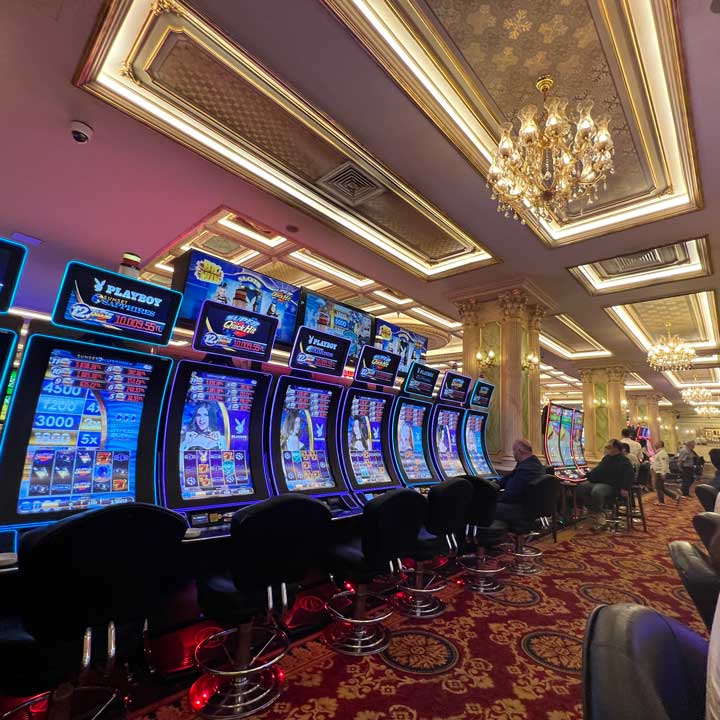
Casino gaming has long been a topic of fascination and debate, attracting millions of players globally. With a mix of chance, skill, and the excitement of uncertainty, casino games offer an exhilarating escape from everyday life. However, as entertainment becomes ever more accessible, it calls for a deeper examination of the ethical implications surrounding these games.
At the heart of the discussion lies the question of whether casinos promote responsible gaming or take advantage of at-risk individuals. The appeal of potential winnings versus the reality of losses can create a challenging situation, and understanding this balance is crucial for both players and operators. As we delve into the ethics of casino gaming, we will explore the responsibilities of casinos, the impact on society, and the measures that can be taken to foster a healthier gaming environment.
The Impact of Casino Gaming on Society
Casino gaming has a considerable influence on society, affecting not only the financial landscape but also interpersonal dynamics and community structures. The revenue generated from casinos can lead to job creation and boost regional economies, as they provide numerous employment opportunities in multiple fields including hospitality, entertainment, and shopping. However, while the economic advantages can be substantial, communities often grapple with the possible negative impacts that arise from increased gambling activity.
Moreover, the presence of casinos can lead to an increase in gambling addiction, presenting serious challenges for players and families. The thrill of casino games can quickly evolve into a compulsive habit, affecting personal relationships and leading to financial instability. Many individuals may struggle with the loss of control over their gambling habits, resulting in a need for assistance programs and interventions to address this increasing issue. The social cost of gambling addiction can ripple through kinships and neighborhoods, creating an urgent need for sensible gambling approaches.
In addition to the economic and social ramifications, casino gaming often showcases cultural attitudes towards uncertainty and leisure. It can encourage a sense of excitement and leisure, attracting visitors and boosting tourism. However, this allure may also conceal the broader implications of gambling as a method of entertainment, raising ethical questions about its advertisement and availability. As communities weigh the advantages and drawbacks of casino gaming, the need for sensible approaches and regulation becomes increasingly critical in ensuring that the positive aspects are enhanced while reducing the potential harms.
Moral Concerns in Betting Practices
The morality of casino operations often center around the risk for dependency and its consequences on individuals and families. Betting can lead to serious financial distress, impacting not only the betters but also their families. As individuals become entrapped in the allure of winning, many lose sight of their financial limits, which can result in catastrophic results such as bankruptcy. This poses ethical questions about the duty of gambling establishments in fostering safe gaming practices and providing support for those who may be struggling with betting addiction.
Another major issue is the promotion of gambling to at-risk groups. Gambling establishments often aim at low-income people or communities with the promise of quick gains, which can perpetuate patterns of financial struggle and despair. 69VN In this context, the morality of advertising strategies used by gambling establishments come under examination, as they may exploit the need of individuals seeking an way out from financial hardships. This manipulation raises moral questions about the integrity of the betting industry and its obligation to protect its most vulnerable patrons.
Additionally, the effect of casino gaming on society as a entirety cannot be overlooked. While some argue that gambling establishments create employment and boost local economies, others point to the community costs associated with dysfunctional betting, increased criminal rates, and a burden on public resources. Balancing economic benefits with the potential for community issues presents a challenging moral dilemma for lawmakers and gambling operators alike. The difficulty lies in finding a responsible approach that takes into account the welfare of people and society while still permitting for the enjoyment of gambling gaming.
Regulatory Framework and Responsibilities
The oversight structure surrounding gambling games is designed to ensure justice, honesty, and player safety. Various government entities and casino commissions create and implement regulations that dictate how gaming operations function, the guidelines for product creation, and the procedures for handling rewards. These regulations differ by region but usually involve permit requirements for providers and rigorous measures to prevent deception and dishonesty.
In furthermore to governing bodies, gambling businesses bear considerable responsibility in preserving moral standards within their facilities. https://69vn.travel/ They must adopt safe gambling practices that promote player protection and education, including providing self-ban options and providing information about the dangers connected to gambling. Operators are also obligated for instructing staff to recognize signs of compulsive gaming and know the appropriate actions to assist visitors in trouble.
Furthermore, openness in gambling operations is vital for earning and keeping public faith. Operators should present clear details about the chances of games, advertising opportunities, and any associated dangers. By promoting an culture of integrity and trust, gambling establishments can help lessen the likelihood negative impact of betting while boosting the overall gaming experience for all participants.